Einführung
Choosing the right 3 Ton Mini Excavator for your needs can be a daunting task, especially with the variety of options available in the market. Whether you’re in construction, landscaping, or any industry that requires heavy-duty digging, a 3 Ton Mini Excavator is an invaluable piece of equipment. This blog will guide you through the essential factors to consider, ensuring you make an informed decision that fits your specific requirements.
Understanding the Basics of a 3-Tonnen-Minibagger
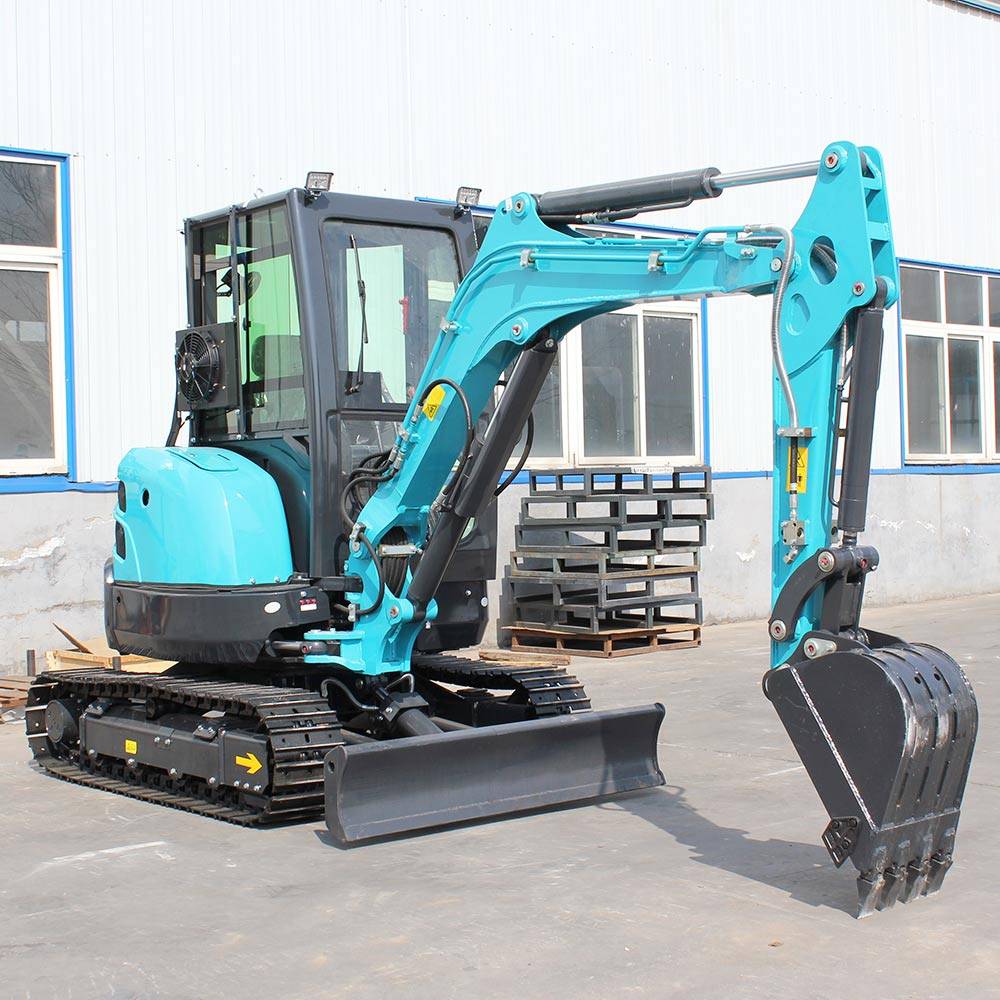
What is a 3 Ton Mini Excavator?
A 3 Ton Mini Excavator is a compact, versatile piece of machinery that weighs approximately three metric tons. It is designed for tasks such as digging, trenching, and demolition in confined spaces where larger excavators cannot operate. Its size allows for greater maneuverability while still offering significant power and efficiency.
Key Features of a 3 Ton Mini Excavator
- Kompakte Größe: Ideal for tight spaces.
- Powerful Performance: Capable of handling tough jobs.
- Vielseitigkeit: Can be equipped with various attachments.
- Ease of Transport: Can be transported on a standard trailer.
Assessing Your Needs
Choosing the right 3 Ton Mini Excavator begins with a thorough assessment of your specific needs and project requirements. This step is crucial as it helps you determine which features and capabilities are essential for your work, ensuring that you invest in a machine that will effectively meet your expectations and demands. Here’s a detailed look at how to assess your needs effectively:
Analyzing Your Project Requirements
The first step in assessing your needs is to clearly define the scope and nature of your projects. Consider the following factors:
- Art von Arbeit: Identify the primary tasks you will be performing with the excavator. Are you primarily focused on digging, trenching, lifting, or demolition? Different tasks may require specific features or attachments.
- Project Environment: Evaluate the environment in which you will be operating the excavator. Are you working in urban areas with limited space, rural areas with uneven terrain, or confined spaces such as indoor construction sites? The project environment will significantly influence the size and maneuverability requirements of the excavator.
- Häufigkeit der Nutzung: Determine how often you will be using the excavator. If you need it for daily use in large-scale projects, durability and low maintenance will be key considerations. For occasional use, you might prioritize cost-effectiveness and ease of storage.
Determining the Necessary Attachments
The versatility of a 3 Ton Mini Excavator is one of its most valuable attributes. To maximize this versatility, consider the attachments that will be necessary for your projects. Here are some common attachments and their uses:
- Eimer: Standard buckets are essential for digging and material handling. Different sizes and types of buckets (e.g., trenching, grading) can be selected based on the specific needs of your project.
- Schnecken: Ideal for drilling holes for posts, planting trees, or other applications that require precise, cylindrical holes. Augers come in various diameters to suit different requirements.
- Hydraulic Hammers: Perfect for demolition tasks, hydraulic hammers can break through concrete, asphalt, and other tough materials. They add significant power to your excavator’s capabilities.
- Greifer: Used for handling and sorting debris, grapples are excellent for tasks such as clearing land, sorting recyclable materials, and moving logs or large rocks.
- Daumen: Hydraulic thumbs are great for grasping irregularly shaped objects, making them useful for landscaping and demolition work where materials are not uniform in size.
Überlegungen zum Budget
Understanding and setting a budget is a critical part of assessing your needs. The cost of a 3 Ton Mini Excavator can vary widely based on the brand, model, features, and attachments. Here’s how to approach budget considerations:
- Anfänglicher Kaufpreis: Determine the upfront cost of the excavator, including any necessary attachments. Compare prices from different dealers and look for promotional offers or financing options that can help reduce the initial expense.
- Betriebskosten: Consider the long-term operating costs, including fuel consumption, maintenance, and repairs. Fuel-efficient models might have a higher upfront cost but can save money over time through lower operational expenses.
- Wartung und Reparatur: Budget for regular maintenance and potential repairs. Investigate the availability and cost of spare parts, as well as the ease of performing maintenance tasks. Some brands offer maintenance packages that can help manage these costs more predictably.
- Wiederverkaufswert: Consider the potential resale value of the excavator. High-quality brands with a good reputation often retain their value better, providing a higher return on investment if you decide to sell or upgrade in the future.
Evaluating Site Conditions
The conditions of your worksite are crucial in determining the specifications you need from your 3 Ton Mini Excavator. Here are some aspects to evaluate:
- Soil and Terrain: Different soil types and terrain conditions (e.g., rocky, sandy, or clay) require different levels of power and specific attachments. Ensure the excavator you choose can handle the toughest conditions you’ll encounter.
- Access and Space: Assess the accessibility of your worksite. Narrow passages and confined spaces might require a more compact, agile machine. Check the turning radius and overall dimensions of the excavator to ensure it can maneuver effectively within your site constraints.
- Climate and Weather: Consider the climate and weather conditions where you’ll be operating the excavator. Machines with enclosed cabs and climate control may be necessary in extreme weather conditions to ensure operator comfort and safety.
Machen Sie Ihre Investition zukunftssicher
While assessing your current needs, it’s also important to think about future projects and potential growth. Choose an excavator that not only meets your immediate requirements but can also adapt to changing demands. Look for models with upgrade options or the ability to add new attachments as your business evolves.
Comparing Brands and Models
Popular Brands of 3 Ton Mini Excavators
Several brands are known for producing high-quality 3 Ton Mini Excavators. Here are a few to consider:
| Marke | Hauptmerkmale |
|---|---|
| Raupe | Durable, high-performance, extensive dealer network |
| Qilu | Reliable, fuel-efficient, easy maintenance |
| John Deere | Innovative technology, comfortable cabins, versatile attachments |
| Marke | Hauptmerkmale |
|---|---|
| John Deere | Innovative technology, comfortable cabins, versatile attachments |
| Rotluchs | Robust design, easy to operate, high resale value |
| Hitachi | Advanced hydraulics, compact design, excellent fuel efficiency |
Key Factors to Compare
When comparing different models and brands, consider the following factors:
- Motorleistung: Higher power for more demanding tasks.
- Hydrauliksystem: Efficiency and power of the hydraulic system.
- Bedienerkomfort: Ergonomics and comfort features for the operator.
- Wartungsanforderungen: Ease and frequency of maintenance.
- Warranty and Support: Length and comprehensiveness of the warranty and the availability of customer support.
Evaluating Performance and Efficiency
When choosing a 3 Ton Mini Excavator, evaluating its performance and efficiency is critical to ensuring it meets your operational needs and delivers long-term value. This involves assessing various aspects of the machine’s functionality, from its maneuverability to its fuel efficiency. Here’s an in-depth look at how to evaluate these factors effectively:
Test Driving the Excavator
A hands-on test drive is one of the best ways to gauge the performance of a 3 Ton Mini Excavator. Here are key elements to focus on during the test drive:
- Wendigkeit: Check how easily the excavator can navigate tight spaces and complex work environments. A well-designed machine should offer smooth, precise movements, allowing you to work efficiently in confined areas.
- Control Responsiveness: Evaluate the responsiveness of the controls. The excavator should respond immediately to input, providing the operator with a sense of control and precision. Test the joystick and pedal operations to ensure they are intuitive and easy to use.
- Stabilität und Gleichgewicht: Assess the stability of the machine, particularly when performing lifting or digging operations. A stable excavator minimizes the risk of tipping and enhances safety on the job site. Try operating the machine on uneven terrain to see how it handles.
- Visibility: Operator visibility is crucial for safety and efficiency. Ensure that the cab provides a clear, unobstructed view of the work area. Good visibility reduces the likelihood of accidents and improves precision in tasks like trenching and grading.
- Komfort und Ergonomie: The comfort of the operator can significantly impact productivity. Check the ergonomics of the seat, the layout of the controls, and the overall cab design. Features like adjustable seats, climate control, and low noise levels can make long working hours more manageable.
Kraftstoffeffizienz
Fuel efficiency is a key factor that can affect the long-term operating costs of your 3 Ton Mini Excavator. Here’s how to evaluate it:
- Fuel Consumption Rate: Compare the fuel consumption rates of different models. Manufacturers typically provide this information in gallons per hour. Opt for a model that offers the best balance between power and fuel efficiency.
- Engine Technology: Look for modern, fuel-efficient engine technologies such as electronic fuel injection (EFI) or advanced diesel engines that comply with emission standards. These technologies not only reduce fuel consumption but also minimize environmental impact.
- Eco-Mode Settings: Many newer models come with eco-mode settings that optimize the engine’s performance to save fuel during less demanding tasks. Test these settings to see how they affect the machine’s efficiency and performance.
Wartung und Haltbarkeit
Regular maintenance is essential to keep your excavator in top working condition and prolong its lifespan. Evaluate the following aspects to ensure the machine you choose is durable and easy to maintain:
- Service Intervals: Check the recommended service intervals provided by the manufacturer. Longer service intervals mean less downtime and lower maintenance costs. Ensure you have a clear understanding of what routine maintenance entails and how frequently it needs to be performed.
- Ease of Access: Inspect the machine’s design for ease of access to critical components like the engine, hydraulic system, and filters. A well-designed excavator should have accessible service points that make routine maintenance tasks straightforward and quick.
- Quality of Components: Assess the quality of the materials and components used in the excavator’s construction. Durable, high-quality components reduce the likelihood of breakdowns and extend the machine’s operational life. Look for features like reinforced booms, robust undercarriages, and high-quality hydraulic systems.
- Support and Parts Availability: Ensure that the manufacturer or dealer provides strong support and readily available spare parts. This is crucial for minimizing downtime in case of repairs. Check if the dealer offers maintenance packages or extended warranties that can provide additional peace of mind.
Real-World Performance Feedback
Beyond the technical specifications and test drives, real-world feedback from current users can provide invaluable insights into the excavator’s performance and efficiency. Here’s how to gather this information:
- Benutzerbewertungen und Erfahrungsberichte: Read reviews and testimonials from other users who have experience with the model you are considering. Pay attention to comments about reliability, fuel efficiency, and ease of maintenance.
- Case Studies and Success Stories: Look for case studies or success stories published by manufacturers or industry publications. These can provide detailed examples of how the excavator performs in real-world applications similar to yours.
- Professional Assessments: Consult with professionals in the industry who have used various models. Their firsthand experience can highlight potential advantages and drawbacks that may not be apparent from specifications alone.
Comparative Analysis
Conducting a comparative analysis of different models is a crucial step in evaluating performance and efficiency. Create a comparison chart that includes the following criteria:
- Motorleistung und Leistung: Compare the horsepower, torque, and overall performance metrics of different models.
- Hydraulic System Efficiency: Assess the efficiency and power of the hydraulic system, which is critical for digging and lifting operations.
- Betriebskosten: Include both fuel consumption and maintenance costs in your analysis to get a clear picture of the total cost of ownership.
- Operator Comfort and Safety Features: Compare the ergonomic features, safety systems, and operator comfort across different models.
Making the Final Decision
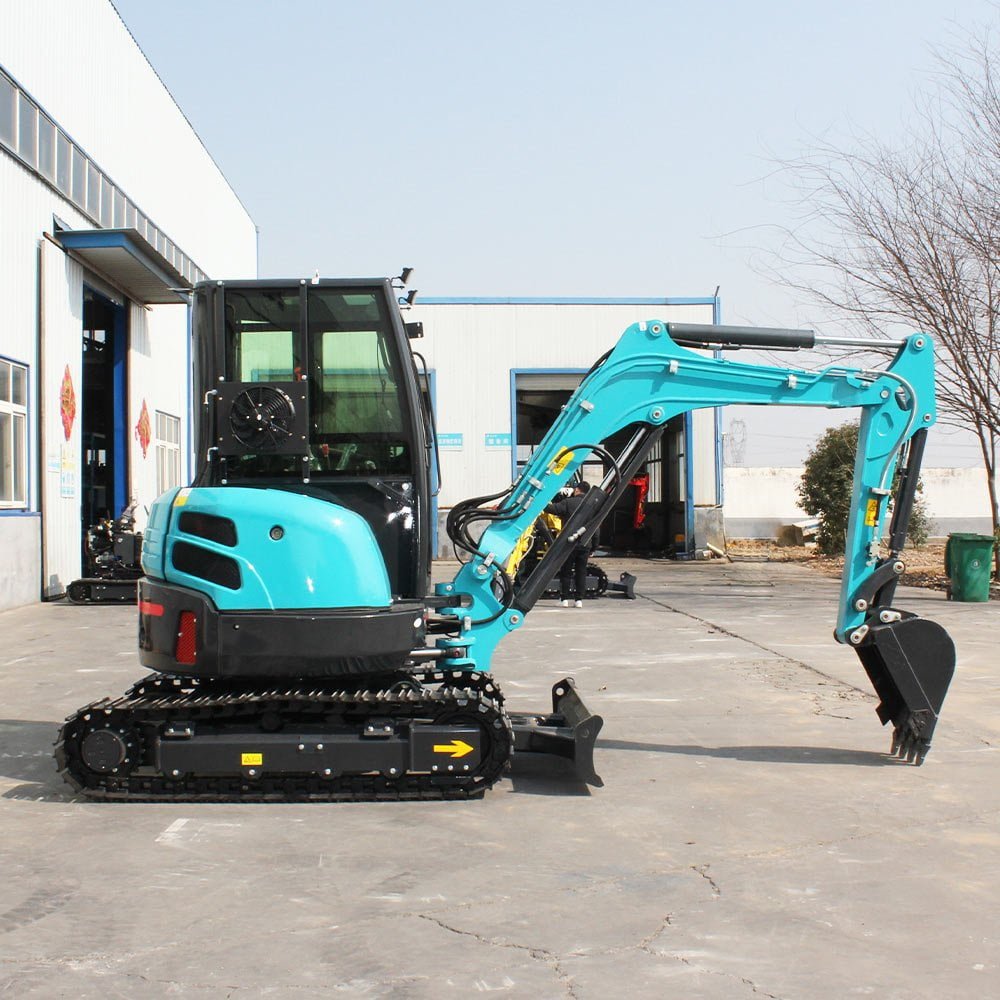
Choosing the right 3 Ton Mini Excavator involves several steps, and the final decision should be made carefully to ensure it aligns with your specific needs and budget. Here’s an expanded look at how to make the final decision effectively:
Consulting with Experts
Consulting with industry experts can provide invaluable insights. These professionals have extensive experience and knowledge about various excavator models and their applications. Here are some steps to take:
- Speak with Sales Representatives: Reach out to sales representatives from different brands. They can provide detailed information about the features, benefits, and potential drawbacks of each model.
- Industry Consultants: Hire an industry consultant who can offer an unbiased opinion based on your project requirements. They can also help you understand the latest trends and technological advancements in the market.
- User Forums and Groups: Engage in online forums and user groups where professionals share their experiences with different excavators. This can give you practical insights that aren’t available in brochures or sales pitches.
Reading Reviews and Testimonials
User reviews and testimonials are a goldmine of information. They offer real-world insights into the performance, reliability, and maintenance of different models. Here’s how to make the most of them:
- Online-Rezensionen: Check reputable websites for reviews. Pay attention to recurring themes in the feedback, such as frequent mechanical issues or exceptional performance in specific tasks.
- Testimonials from Similar Projects: Look for testimonials from projects similar to yours. For example, if you’re in landscaping, find reviews from other landscapers to understand how the excavator performs in similar conditions.
- Video Reviews: Video reviews can provide a more detailed look at the excavator in action. They often include demonstrations of features and performance tests that written reviews might not cover.
Negotiating the Best Deal
Once you’ve narrowed down your options, it’s time to negotiate the best deal. Here are some strategies to consider:
- Price Comparison: Obtain quotes from multiple dealers. This gives you a benchmark for negotiation and helps ensure you’re getting a competitive price.
- Inclusions and Extras: Negotiate for additional features or services to be included in the deal. This could be extra attachments, extended warranties, or maintenance packages.
- Finanzierungsmöglichkeiten: Explore financing options if the upfront cost is a concern. Many dealers offer flexible financing plans that can spread the cost over several years. Make sure to compare interest rates and terms to find the best deal.
- Trade-In Offers: If you have an older piece of equipment, check if the dealer offers trade-in discounts. This can significantly reduce the cost of your new excavator.
- Service Agreements: Ensure that the deal includes a comprehensive service agreement. This should cover regular maintenance, emergency repairs, and parts replacement.
Final Checks Before Purchase
Before finalizing your purchase, conduct a thorough review to ensure you haven’t overlooked any critical aspects:
- Betriebseffizienz: Reassess the excavator’s operational efficiency based on your project needs. Ensure it can handle the workload and site conditions.
- Warranty and Support: Double-check the warranty terms and the availability of customer support. A good warranty and reliable support can save you from future headaches.
- Compliance with Regulations: Ensure the excavator complies with local regulations and industry standards. This is especially important if you’re using it for specific industries like construction or mining.
Making the Purchase
When everything is in place, and you’re confident in your choice, proceed with the purchase. Ensure all agreements are documented, and you receive all necessary paperwork, including the warranty, service agreements, and operator manuals.
Fazit
Choosing the right 3 Ton Mini Excavator for your needs requires careful consideration of various factors, including your project requirements, budget, and the specific features of different models. By thoroughly evaluating your options and consulting with experts, you can make an informed decision that will enhance the efficiency and success of your projects.
FAQ
What is the lifespan of a 3-Tonnen-Minibagger?
The lifespan of a 3 Ton Mini Excavator depends on several factors, including the brand, usage, and maintenance. On average, a well-maintained excavator can last between 10,000 to 15,000 hours of operation.
How often should I service my 3 Ton Mini Excavator?
Regular maintenance is crucial for the longevity of your excavator. It is recommended to follow the manufacturer’s maintenance schedule, typically every 250 to 500 hours of operation.
Can I use a 3 Ton Mini Excavator for demolition work?
Yes, with the appropriate attachments, a 3 Ton Mini Excavator can handle light to moderate demolition work. Attachments like hydraulic hammers and grapples are commonly used for such tasks.
What is the average fuel consumption of a 3 Ton Mini Bagger?
Fuel consumption varies by model and usage, but on average, a 3 Ton Mini Excavator consumes approximately 1.5 to 2.5 gallons per hour.
Are there any financing options available for purchasing a 3 Ton Mini Excavator?
Yes, many dealers and manufacturers offer financing options to help you purchase a 3 Ton Mini Excavator. It’s advisable to explore these options and choose one that fits your financial situation.

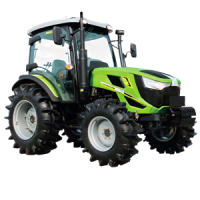
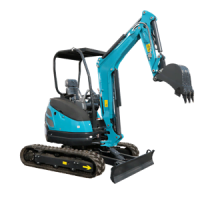
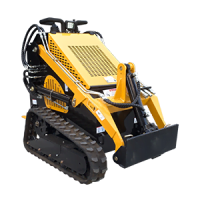

-1.png)